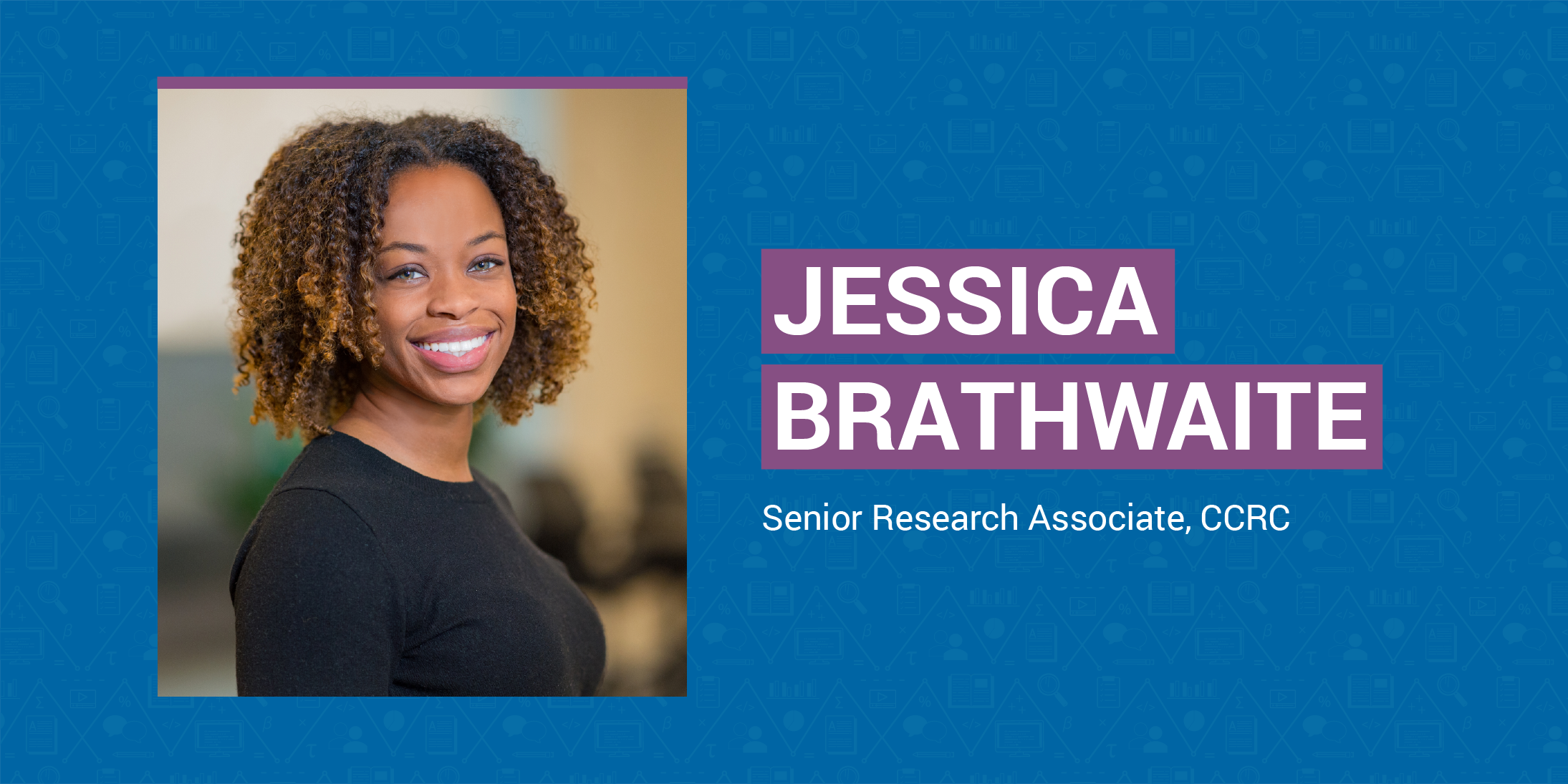Jessica Brathwaite’s mother wasn’t about to let her languish in poorly performing neighborhood schools. When the CCRC senior research associate was a child, her mother camped out at the New York City Department of Education—city test scores in hand—and pointed out that the kids in Brathwaite’s assigned Queens district could barely read. She vehemently argued that her children could not enroll there and would be far better served by a higher performing public elementary school elsewhere in the city.
It worked.
Brathwaite and her brother became two of the few Black students in a sea of White and Asian faces. She said she remembers her wealthy classmates coming to school in Douglaston Manor, Queens, with $20 worth of allowance, while she wondered where they got so much money, and living in bedrooms that seemed absolutely massive. And so Brathwaite’s early experiences in education set the tone for what would become one of her strongest research interests: inequality.
“From a young age, I was able to see extreme wealth at school right alongside extreme poverty where I lived,” Brathwaite said. “I went to school with kids who had horses and went to country clubs for their birthday parties, but in my neighborhood, kids weren’t going to school sometimes.”
Brathwaite attended predominantly White schools until 10th grade, when New York City’s high school choice policy allowed more students from her neighborhood to enroll in the wealthy Queens district she had been attending for years. As a result, Brathwaite’s high school was more integrated than her K–9 schools, and she noticed educational disparities between students based on where they went to elementary and middle school.
“I was able to see the differences between my education experience thus far and my fellow Black students who had gone to K–9 schools in my neighborhood,” Brathwaite said. “Differences in outlook, but also just pure academic skills, the standards that they had for themselves, and all types of things. I was just always fascinated by inequality because I saw it. I lived it.”
Brathwaite’s K–12 education set the stage for her to gravitate toward sociology as an undergraduate student at CUNY’s Hunter College, and the opportunity to explore concepts she had experienced growing up in an academic setting excited her. To Brathwaite, an idea like social capital wasn’t just a theoretical concept; she remembered hearing her wealthy classmates talk about the uncles they would call to help them get jobs.
After completing her master’s and PhD coursework in sociology at Temple University, Brathwaite made her way to CCRC, where she worked full-time and completed her dissertation. Brathwaite’s focus on equitable education practices was a natural fit here: Community colleges serve a disproportionate number of students who are underrepresented in higher education, and many of them do not fulfill their education and career goals. Similar to the dynamics Brathwaite observed in her K–12 district, community colleges in less affluent areas also struggle with more challenges and without the resources needed to address them.
As a result, Brathwaite is particularly interested in community college finance and how policy can redistribute resources to help redress gaps in institutional funding between two-year and four-year institutions.
“If we say we want to disconnect a student’s social origin from where they actually end up, you actually have to try to detach it within the educational system,” Brathwaite said. “You can’t send them to schools that are still based on where they came from, which are therefore lower quality, and then expect them to magically push through and end up where everyone else ends up. That’s not how that works.”
In addition to working on projects related to developmental education, achievement gaps, and English language learners, Brathwaite is helping craft an equity framework for CCRC research. She said she’d like to continue doing work on educational inequality and draw attention to the fact that, though community colleges are often touted as engines of economic mobility, contemporary policies don’t actually allow them to fulfill that promise for many of the students who need the most help.
“We’re funding community colleges in ways that often produce poor outcomes,” Brathwaite said. “There are ways that education perpetuates or exacerbates inequality. If I could clarify those ways for people, and make it more clear that education—this great thing—is not working so well in these areas and show how it can be improved, I think that would be good.”





